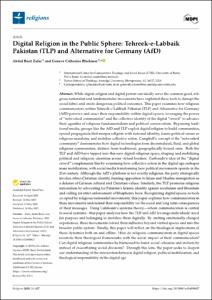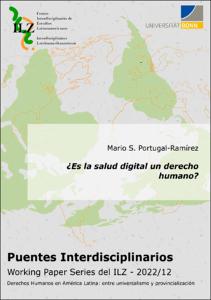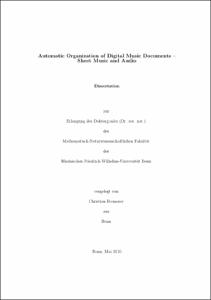Zafar, Abdul Basit; Blackmer, Geneva Catherine: Digital Religion in the Public Sphere : Tehreek-e-Labbaik Pakistan (TLP) and Alternative for Germany (AfD). In: Religions. 2025, vol. 16, iss. 5, 627, 1-16.
Online-Ausgabe in bonndoc: https://hdl.handle.net/20.500.11811/13632
Online-Ausgabe in bonndoc: https://hdl.handle.net/20.500.11811/13632
@article{handle:20.500.11811/13632,
author = {{Abdul Basit Zafar} and {Geneva Catherine Blackmer}},
title = {Digital Religion in the Public Sphere : Tehreek-e-Labbaik Pakistan (TLP) and Alternative for Germany (AfD)},
publisher = {MDPI},
year = 2025,
month = may,
journal = {Religions},
volume = 2025, vol. 16,
number = iss. 5, 627,
pages = 1--16,
note = {While digital religion and digital protest can ideally serve the common good, religious nationalist and fundamentalist movements have exploited these tools to disrupt the social fabric and create dangerous political outcomes. This paper examines how religious communicators within Tehreek-e-Labbaik Pakistan (TLP) and Alternative for Germany (AfD) perceive and enact their responsibility within digital spaces, leveraging the power of "networked communities" and the collective identity of the digital "crowd" to advance their agendas of religious fundamentalism and political conservatism. Bypassing traditional media, groups like the AfD and TLP exploit digital religion to build communities, spread propaganda that merges religion with national identity, frame political issues as religious mandates, and mobilize collective action. Campbell's concept of the "networked community" demonstrates how digital technologies form decentralized, fluid, and global religious communities, distinct from traditional, geographically bound ones. Both the TLP and AfD have tapped into this new digital religious space, shaping and mobilizing political and religious identities across virtual borders. Gerbaudo's idea of the "digital crowd" complements this by examining how collective action in the digital age reshapes mass mobilization, with social media transforming how political movements operate in the 21st century. Although the AfD's platform is not overtly religious, the party strategically invokes ethno-Christian identity, framing opposition to Islam and Muslim immigration as a defense of German cultural and Christian values. Similarly, the TLP promotes religious nationalism by advocating for Pakistan's Islamic identity against secularism and liberalism and calling for strict enforcement of blasphemy laws. Recognizing digital spaces as tools co-opted by religious nationalist movements, this paper explores how communicators in these movements understand their responsibility for the social and long term consequences of their messages. Using Luhmann's systems theory—where communication is central to social systems—this paper analyzes how the TLP and AfD leverage individuals' need for purpose and belonging to mobilize them digitally. By crafting emotionally charged experiences, these movements extend their influence beyond virtual spaces and into the broader public sphere. Finally, this paper will reflect on the theological implications of these dynamics both on and offline. How do religious communicators in digital spaces reconcile their theological frameworks with the social impact of their communication? Can digital religious communities be harnessed to foster social cohesion and inclusivity instead of exacerbating social divisions? Through this lens, the paper seeks to deepen our understanding of the intersection between digital religion, political mobilization, and theological responsibility in the digital age.},
url = {https://hdl.handle.net/20.500.11811/13632}
}
author = {{Abdul Basit Zafar} and {Geneva Catherine Blackmer}},
title = {Digital Religion in the Public Sphere : Tehreek-e-Labbaik Pakistan (TLP) and Alternative for Germany (AfD)},
publisher = {MDPI},
year = 2025,
month = may,
journal = {Religions},
volume = 2025, vol. 16,
number = iss. 5, 627,
pages = 1--16,
note = {While digital religion and digital protest can ideally serve the common good, religious nationalist and fundamentalist movements have exploited these tools to disrupt the social fabric and create dangerous political outcomes. This paper examines how religious communicators within Tehreek-e-Labbaik Pakistan (TLP) and Alternative for Germany (AfD) perceive and enact their responsibility within digital spaces, leveraging the power of "networked communities" and the collective identity of the digital "crowd" to advance their agendas of religious fundamentalism and political conservatism. Bypassing traditional media, groups like the AfD and TLP exploit digital religion to build communities, spread propaganda that merges religion with national identity, frame political issues as religious mandates, and mobilize collective action. Campbell's concept of the "networked community" demonstrates how digital technologies form decentralized, fluid, and global religious communities, distinct from traditional, geographically bound ones. Both the TLP and AfD have tapped into this new digital religious space, shaping and mobilizing political and religious identities across virtual borders. Gerbaudo's idea of the "digital crowd" complements this by examining how collective action in the digital age reshapes mass mobilization, with social media transforming how political movements operate in the 21st century. Although the AfD's platform is not overtly religious, the party strategically invokes ethno-Christian identity, framing opposition to Islam and Muslim immigration as a defense of German cultural and Christian values. Similarly, the TLP promotes religious nationalism by advocating for Pakistan's Islamic identity against secularism and liberalism and calling for strict enforcement of blasphemy laws. Recognizing digital spaces as tools co-opted by religious nationalist movements, this paper explores how communicators in these movements understand their responsibility for the social and long term consequences of their messages. Using Luhmann's systems theory—where communication is central to social systems—this paper analyzes how the TLP and AfD leverage individuals' need for purpose and belonging to mobilize them digitally. By crafting emotionally charged experiences, these movements extend their influence beyond virtual spaces and into the broader public sphere. Finally, this paper will reflect on the theological implications of these dynamics both on and offline. How do religious communicators in digital spaces reconcile their theological frameworks with the social impact of their communication? Can digital religious communities be harnessed to foster social cohesion and inclusivity instead of exacerbating social divisions? Through this lens, the paper seeks to deepen our understanding of the intersection between digital religion, political mobilization, and theological responsibility in the digital age.},
url = {https://hdl.handle.net/20.500.11811/13632}
}









